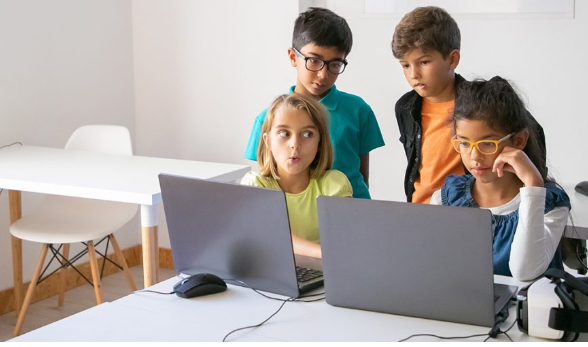
Showing interactive abilities to small kids is one of the most troublesome and disappointing, however remunerating, parts of being a parent. It is never too soon to start showing kids interactive abilities; on the other side, it is never past time to enhance their capacities. Fundamental interactive abilities for youngsters can be instructed as soon as they get into primary school, and you can then deal with these abilities bit by bit.
Also read: a words for kids
Straightforward behaviors like saying please and thank you and keeping in touch can all fundamentally work on interactive abilities for kindergarteners. Interactive abilities for youngsters assist them with showing up more sure and fabricating more grounded and satisfying associations with others.
8 Significant Interactive Abilities for Youngsters
Remembering youngsters’ interactive abilities as they are growing up, here is a rundown of interactive abilities to instruct your children now:
1. Sharing
The demonstration of sharing is ordinary, yet young kids frequently find it difficult to figure out the thought of sharing. Youngsters in the little child, preschool, and nursery years battle the most because they are more distracted by their requirements. Sharing is a pivotal social-close-to-home learning action for a youngster as it empowers them to maintain and develop fellowships. It’s a superb chance to interface with others and offer thanks.
2. Tuning in
Indeed, even grown-ups face trouble with the vital expertise of undivided attention. The center is fundamental for accurately understanding and osmosis of data. Even though it tends to be hard for small kids, undivided attention can further develop their responsive language capacities (the capacity to fathom communicated in language). Focusing on what somebody is talking about and answering their statements or questions is vital to solid correspondence.
3. Adhering to Guidelines
After your youngster begins school, kindergarten interactive abilities are exceptionally vital for them to adhere to directions. Adhering to directions from figures they may not know all about is not the same as doing so at home with their folks, where children feel normally calm. Please provide them with guidance to support their ability to adhere to directions.
4. Teaming up And Cooperating
Collaboration exercises in kids permit them to voice their thoughts and pay attention to those of others if they have solid collaboration and participation capacities. It empowers kids to comprehend that participating in a gathering try can be charming! Show your children great habits that will assist them regarding others’ perspectives, paying little heed to how various they are.
5. Persistence
Everybody loathes pausing. However, nobody despises standing by more than dynamic preschoolers who haven’t yet taken in the worth of persistence. Notwithstanding, instructing persistence to your kids is pivotal. Your youth will turn out to be quieter as their language capacities advance, and they get more practice, maybe standing by at a playpark, hanging tight in an eatery for food, or a performance center, trusting that a show or emulate will start.
6. Compassion
Compassion is the capacity to grasp and sympathize with others’ feelings. The bliss and difficult snapshots of individuals around them won’t be huge prior, yet they will become increasingly more evident to your kid as they age. The least demanding method for supporting your kid’s advancement of compassion is by your own decisions. Your young person will figure out how to show elegance to other people, assuming you do it regularly.
7. Sticking to Limits
Discovering that limits are expected by others as well as the actual kid is an idea that can be incredibly difficult, particularly for small children who get a lot of their associating from inside the home. Your youth might expect everybody to be fine with embraces, questions, or a great deal of casual banter on the off chance that they are an outgoing individual.
8. Inspiration
Zeroing in on energy in the wake of confronting difficulties to beat them can make learning a large number of the other positive interactive abilities for youngsters we’ve featured, quite persistence, limits, tuning in, and sharing, essentially less complex for your kid. Your kid will find it less complex to make and keep up with companions, do well in school, and achieve their objectives if they have a hopeful standpoint. The more certain and energetic you are about your kid’s interactive ability advancement (alongside their unavoidable missteps), the more quiet and sure they will feel.







